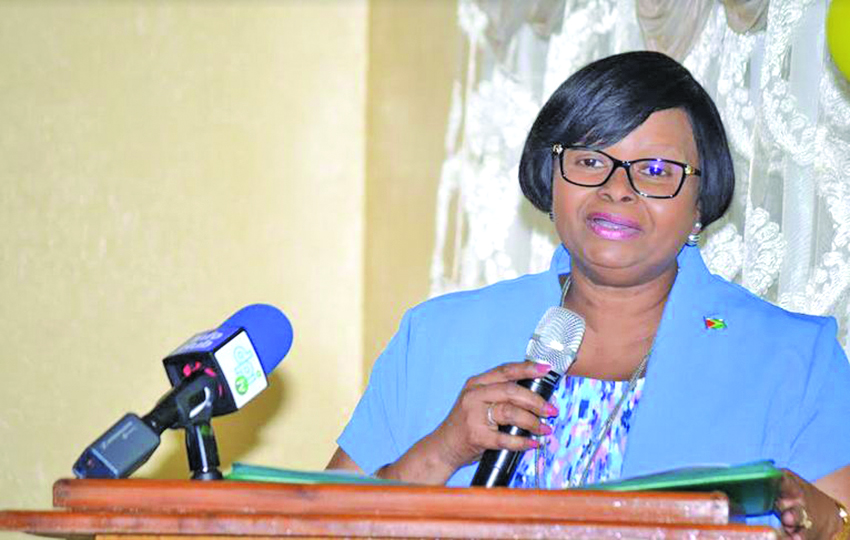Grace period expires
By Jarryl Bryan
Amidst much contention, the coalition Government pushed through a Tobacco Control Bill in July of 2017. Now the grace period, which was supposed to be used by health officials to launch an aggressive awareness campaign to familiarise the general public with the new laws, has expired.
An order was signed by Public Health Minister Volda Lawrence and dubbed the ‘Tobacco Control (Commencement) Order 2017’. It declares that the Tobacco Control Act will henceforth come into operation.
The Tobacco Control (Commencement) Order 2017 is retroactive, thus it takes effect from a date prior to its operationalisation. In this case, the order was made retroactive by the Minister from December 11, 2017, making any public smoking after that date illegal.
Government’s Tobacco Control Bill provides that public smoking of cigarettes and other tobacco products, such as cigars, will be prohibited by law. Moreover, no person shall be permitted to smoke in any waiting area or queue in a public place.
Those public places include, but are not limited to, any public transport stop, bus stand, or bus park. Smoking would also be prohibited in any park, playground, or amusement park; any stadium, arena, or any kind of sport of performance place; or any space for commercial service of food or drinks.
The Act says it shall also be illegal for persons to smoke in any area within five metres of a window, door, or ventilation inlet to any public place or indoor work place.
Smoking shall also be prohibited anywhere on the premises of — or within five metres from the outside boundary of — any healthcare, educational or child care facility.
Further, no person shall smoke in any part of any indoor working place; indoor public space in any public transport, whether or not the transport is carrying another member of the public; or in any vehicle which is carrying a minor.
Part Five, section 16 (3) of the Act states “Any person who smokes in any place where smoking is prohibited commits an offence, and is liable on summary conviction to a fine of $10,000 for the first offence, and $20,000 for any second or subsequent offence.”
The bill provides for a number of other fines and penalties, ranging from $200,000 and six months’ imprisonment. Corporate bodies can also face fines of up to $9 million for infringing on the ban regarding advertising. The advertising ban includes promotion and sponsorship of tobacco products, even by electronic delivery systems.
Oppressive
Within days of the bill’s passage, the Private Sector Commission (PSC) had come out urging the Government to consider the civil rights aspect of the bill. The commission had stressed that the bill be referred to the Special Select Committee.
The Demerara Tobacco Company Limited (Demtoco) had also expressed concerns that the bill would negatively impact retailers of a legal product. They had argued that the Government can regulate the industry in a more reasonable manner.
The company therefore echoed the calls of the private sector and other stakeholders that the bill be sent to a committee. In addition, it called on the President to intervene and have any excessive measures removed, as well as to have the bill sent to a committee.
According to data released in recent years, although tobacco is acknowledged as a dangerous substance, at least 11 per cent of children in Guyana are regular smokers, and at least 20 per cent of them began smoking before they were 10 years old.
The International Monetary Fund had also recently revealed that, out of a total of 163 countries, 66 middle or low income countries have neither legislation nor polices that regulate the sale, marketing, or use of tobacco.
